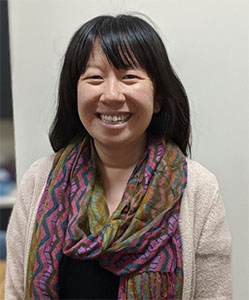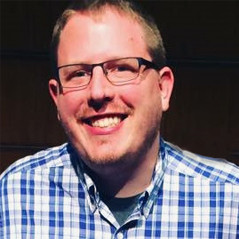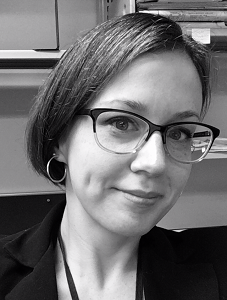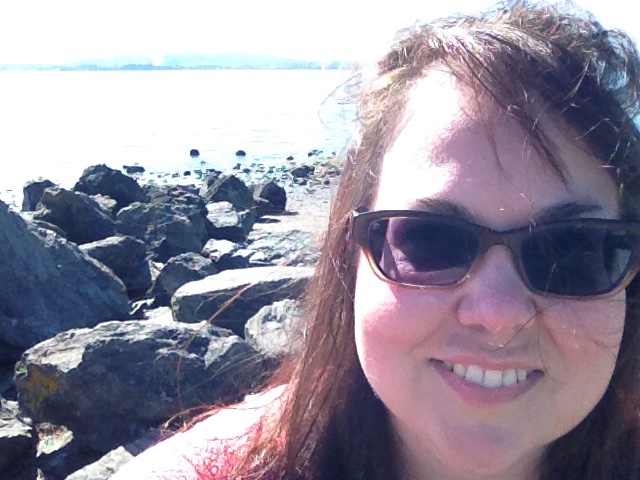2020 Council Candidates
Jennifer Ho
Ryan Leimkuehler
Donica Martin
Sammie Morris
Jennifer Ho

Employment: Archivist for Special Collections, California State University San Marcos, 2019–present; Archivist, The Chicago Community Trust, 2014–2019; Archives Librarian, University of St. Francis, 2012–2014.
Education: MLIS, San Jose State University, 2011; BA, Literature & Writing Studies, California State University San Marcos, 2007.
Professional Activities:
Society of California Archivists: Ethics & Inclusion Committee, 2019–present.
Chicago Area Archivists (CAA): Archives & Archivists of Color Interest Group (founder), 2017–2019; CAA: Steering Committee, Vice Chair, 2016–2018; CAA: Events Subcommittee, Member, 2012–2016.
Candidate Statement:
How could you as a council member help advance MAC’s advocacy goals and build a more inclusive future for the organization?
As a nation, we are pushing for a more inclusive, equitable society. This is neither a simple nor quick process. It often feels that we have been talking collectively about increasing representation, with few results. Despite this, I would push for increased recruitment, experience and education for people underrepresented in our field. As an active member of Chicago Area Archivists, I built the Archives & Archivists of Color Travel Fund from the ground up. It was a rewarding experience and I would like to build on this experience however I can. I also hope to create resources for institutions who want to create a welcoming workplace but don’t know where to start. Inclusion and equity are complicated issues; many of us (myself included) want to make a change but still are unsure how to make it happen.
Angela Davis said, “It is not enough to be non-racist. One must be anti-racist.” As archivists, we should be unafraid to call out unfair, inequitable treatment of our colleagues and community members. Each of us carries a different level of privilege and we ought to use that privilege for our field’s best interest. We have many people within the archives and library arena who are leaders for social justice. Let’s ask them to teach us how to be allies and show us how to amend and avoid inequitable practices. As archivists, we must question norms in the workplace, in our hiring practices, in our “best” practices, and, most importantly, in ourselves. Why do we think the way we do? What societal norms come at the cost of suppressing the voices of people, and how does this carry into the archives world?
As a MAC council member, I hope to contribute to a profession in which archivists of all backgrounds are welcomed and supported.
Ryan Leimkuehler

Employment: University Records Manager, Kansas State University, 2017–present; Government Records Archivist, Kansas Historical Society, 2016–2017.
Education: MLIS, Emporia State University, 2017; Master of Arts in History, Missouri State University, 2012; BSED, Missouri State University, 2010. I am a certified archivist and hold the digital archives specialist (DAS) certificate.
Professional Activities:
MAC: Program Committee, member, 2019–2020; Education Committee, member, 2019–2020; Speakers Bureau, member, 2019–2020; Committee for Presidents’ Award and Distinguished Service Award, Kansas representative, 2017–2020.
SAA: Archives Education Section, steering committee, 2019–2020; Government Records Section, steering committee, 2018–2020; Mentoring Program, mentor, 2017–present.
KCAA: KCAA Steering Committee, member, 2017–present; KCAA Web Administrator, 2017–present.
Candidate Statement:
How could you as a council member help advance MAC’s advocacy goals and build a more inclusive future for the organization?
I will be able to help advance MAC’s advocacy goals and build a more inclusive future for the organization through my eagerness to learn, willingness to listen, and passion for education in our field. I have been involved in several projects that have lasting impacts on our field such as the SAA Archives on the Hill event in 2018, where archives professionals met with congress members and staff to discuss the importance of archival funding at both the state and federal levels. Through my engagement in MAC and SAA I have built a network of colleagues from organizations of various sizes and funding/staffing levels. Through these networks, I can advocate for lone arrangers as well as moderately funded organizations and make sure that these voices are heard and addressed. As an educator and professional, I recognize the importance of diversity in our field and the need to engage and build trust in marginalized communities. My involvement in the mentoring program as well as my role as an instructor for the Haskell Indian Nations University have shaped how I approach engagement in our field and how to bring non-traditional archivists into our profession.
Donica Martin

Employment: Director of the Champaign County Historical Archives, The Urbana Free Library, 2020–present; Archives Librarian, Champaign County Historical Archives of The Urbana Free Library, 2016–2020; Archives Assistant, The Urbana Free Library, 2013–2016.
Education: MLS, University of Kentucky, 2014; MA in English Literature, Eastern Illinois University, 2010; BA in English and Medieval Studies, Eastern Illinois University, 2008.
Professional Activities:
MAC: Poster presenter, 2019; Member, 2016–present; Student Member, 2012–2014.
SAA: Poster presenter, 2019; Member, 2016–present; Student Member, 2012–2014.
ILA (Illinois Library Association): Poster presenter, 2019; Elevate Illinois Libraries Leadership Program, 2019.
ALA: Association for Library and Collections and Technical Services, 2016–2017.
CCGS (Champaign County Genealogical Society): Editor-in-Chief, 2018–present; Library liaison, 2016–2018; Vice President, 2014–2016.
Candidate Statement:
How could you as a council member help advance MAC’s advocacy goals and build a more inclusive future for the organization?
As a volunteer-based organization with finite funding, MAC’s most valuable advocacy asset is its membership. As a MAC Council member, I will work to advance MAC’s advocacy goals by helping to realize membership objectives set forth in the strategic plan, with special efforts focused on student participation and reaching new professionals. Student members and new professionals are showing an increased interest in MAC participation, as demonstrated by trends like the growing number of first time attendees who apply for the MAC Pals program at the annual meeting. MAC can use the momentum of this trend to recruit new, diverse members to leadership positions, committees, and editorial boards. The opportunity to help build a more inclusive future for the organization inspires me pursue a position on MAC Council.
As a Council member, I will also promote open communication and encourage members to reach out with ideas, suggestions, and opportunities to improve current outreach and advocacy efforts. MAC can provide opportunities to meet leadership and learn more about participating in the organization at the annual meeting, as well as through special events or workshops. We can also provide information about governance on the website and list contact information for MAC Council members to create an open door environment. MAC can use technology as an advocacy tool by increasing social media presence and by using the website to promote MAC events, educational opportunities, and highlight accomplishments of members and their institutions. Social media and email can also be utilized as a means of communicating essential information about issues in Archives and how members can help raise awareness. If elected to Council, I will use my communication skills and enthusiasm for the profession, along with my status as a new professional, to connect with and advocate for MAC members over the next three years.
Sammie Morris

Employment: University Archivist and Head, Division of Archives and Special Collections, Purdue University, 2011–present; Associate Dean for Archives and Special Collections, Florida State University, 2010–2011; Head of Archives and Special Collections, Purdue University, 2005–2010; Archivist, Purdue University, 2003–2005; Managing Archivist, Dallas Museum of Art, 2000–2003; Humanities Research Associate, Center for American History, University of Texas, 1999.
Education: MLIS in Archival Enterprise, University of Texas at Austin, 1998; BA in English, Northwestern State University, Louisiana Scholars’ College, 1996; Certified Archivist, Academy of Certified Archivists, 2000–present.
Professional Activities:
MAC: Editorial Board, Archival Issues, 2013–2019; Membership Committee, 2006–2008; Program Committee, 2005–2006.
SAA: Vice President’s Appointments Committee, 2016–2017; SAA-ACRL/RBMS Joint Task Force on Primary Source Literacy, 2015–2017; Nominating Committee, 2012–2013; Manuscript Repositories Section, chair, 2009–2010; Manuscript Repositories Section, newsletter editor, 2008–2009; Manuscript Repositories Section, vice chair, 2008–2009; Metadata and Digital Object Roundtable, steering committee, 2006–2008; Metadata and Digital Object Roundtable, co–chair, 2005–2006; Manuscript Repositories Section, 2005–2007; Museum Archives Section, newsletter editor, 2000–2003; Museum Archives Section, guidelines committee, 2000–2003.
Archives Leadership Institute: co-director, 2018–present.
Academy of Certified Archivists: Nominating Committee chair, 2007–2008; Nominating Committee member, 2006–2007.
Big Ten Academic Alliance: ILL-Special Collections Task Force, 2017–2018.
MetaArchive Cooperative: Outreach Committee, 2013–2016; Steering Committee, 2010–2011; Preservation Committee, 2010–2011.
Council of State University Libraries of Florida: Special Collections Subcommittee vice president, 2010–2011.
Indiana State Historic Records Advisory Board: 2006–2010.
Society of Indiana Archivists: Executive Board, 2004–2008; President, 2005–2007; Vice President, 2004–2005.
Candidate Statement:
How could you as a council member help advance MAC’s advocacy goals and build a more inclusive future for the organization?
Advocacy and EDI (equity, diversity, and inclusion) are the two most pressing needs for the archives profession. Both are critical to ensuring our ongoing relevance, growth, and success. It is imperative that we not only work on diversifying our collections, and the members of our profession, but also in viewing intercultural competencies skills as essential core skills for every archivist. We need to embrace dialogues around race, gender, religion, and disabilities to come together and work as one strong, unified profession. We need to question and interrogate the systems we have in place that perpetuate all forms of discrimination. Advocacy for EDI is something I am passionately committed to, and I believe this should be integral to every aspect of our work as archivists. If elected as a member of Council, I would advocate for MAC to develop a series of EDI training opportunities for archivists, as well as hosting professional discussions around these issues.
I have extensive experience serving as an advocate for archives in my current and past positions. I believe effective advocacy requires a mixture of awareness of trends and opportunities in the profession, the ability to strategically communicate strengths, opportunities, and resource needs, the ability to demonstrate value, as well as the passion to inspire others to work together towards achieving shared goals. These are areas where I excel, and I would be honored to advocate more broadly for the profession as a member of Council. I also believe in mentoring new and emerging professionals, and ensuring that a wide variety of perspectives inform Council’s decision making. Finally, as a Council member I would advocate for the continuing expansion of MAC’s social media presence and website, online access to all past MAC publications, and targeted campaigns to reach out to graduate students in archives programs.
|